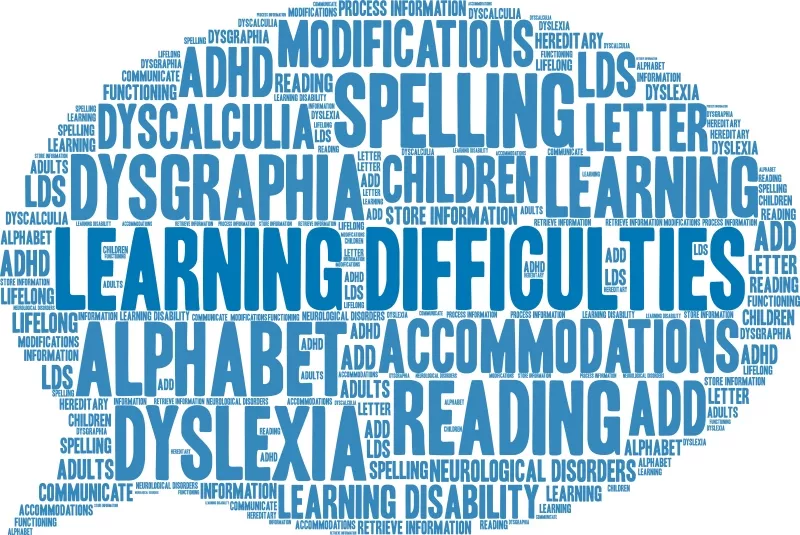5 Indicators your child needs support with school

There are some activities that seem so routine, that when you're bored it can be fun to ponder whether you are alone completing such a menial task.
Yes, I have stood in front of the mirror wondering how many people were brushing their teeth at the same time as me. Don't judge, I reckon we've all done it. Right guys? Right?...
Anyway, another such instance occurs like clockwork at 4 pm every weekday, a collective shrug of the shoulders accompanied by the muffled words of "it was fine". The golden answer to the age-old question: "How was school today?".
School may have been "fine" or "alright" but let's be honest, you aren't going to be writing a novel on their experiences with answers like that. Plus, with feedback from school scarce, it all leaves you with a feeling of helplessness.
It really sucks because all you want to know is if they are actually "okay".

(How I imagine you all reacting to the opening section)
It is key then to keep an eye out for common problems that may be holding them back. So here are 5 red flags to look out for in your child if they are struggling with school.
Anxiety causing mood swings
Teens can be especially sensitive to stress as significant changes in workload have been designed to synchronise perfectly with the exciting rollercoaster of adolescence (who thought that was a good idea by the way? Criminal). This can result in severe mood swings which if not managed could lead to anxiety and depression.
As a parent, it is important to encourage your child to openly discuss their day with you without judgement. This will help them feel like they have somebody to confide in.
Try and take an objective look at their workload. If it seems excessive, talk to their teachers and see if there are any areas that could be lightened.
It is also crucial to establish a healthy routine at home. This means regular mealtimes, bedtimes and some form of exercise every day. This will help to regulate their mood and give them some much-needed downtime.
Finally, let them know that exam results aren't the be-all and end-all of life. It really eases the fear associated with final marks and creates laser focus.

Peer pressure leading them down a bad path
The teen years are when we start to explore our independence and discover who we want to be. This can put a lot of pressure on young people as they try and fit in with their peers.
If you feel like your child is being unduly influenced by their friends, the best thing you can do is talk to them about it. Increased irritability, reckless behaviour, a drop in mood and a sudden change in attitude are all common tell-tale signs of peer pressure, and the emotional effects can be upsetting, damaging their schoolwork at the same time.
Encourage them to voice their opinions and let them know that it's okay to be different. It's also important to help them find a hobby or activity that they're passionate about outside of school as this will give them something to focus on and make new friends with similar interests.
Disengagement & lack of motivation in subjects
As the school year progresses, it is natural for your child to switch off from work (especially during the middle of the school year) and it can become harder to incentivise them to keep pushing on. The issue is if this disengagement persists through mocks and into exam season.
We all have subjects that we aren't fans of, so these shouldn't be of much concern however it can be useful to help them understand the relevance of these subjects to their long-term aspirations. This is a great way of helping them find just enough focus to get through exams on the right side of their predicted grade. For example; if they hate Maths then explaining how budgeting, taxes and measurements all require basic sums and equations can help motivate them to work past their initial resistance.
The real worry lies in subjects that they have previously shown a passion for but suddenly this passion has turned to resentment or loathing (strong words - "don't like anymore" will do as well).
If they’ve become resentful of a subject that they’re normally passionate about, this can also be a sign that something else is bothering them. Having an open conversation and working out what caused the change is the best way to find a solution and have them enjoying class again.
Learning difficulties holding them back
Disorders can be incredibly common but often are undiagnosed because the signs aren't spotted early or at all. If a student is really struggling with tasks such as literacy or you find it hard to keep them concentrating for an extended period of time then they may be suffering from dyslexia or ADHD. When undiagnosed, the student may perceive themselves as being stupid and lose any self-confidence in their abilities. If you notice a trend or persistence of these issues then we suggest speaking to an expert. The school will have a SENCO who can conduct tests or refer to a GP if needed.
Upon diagnosis, you will be able to immediately start finding the exact help your child requires so they can approach their studies in a way that works for them. Below are a few examples of common learning difficulties:
Dyslexia
Attention difficulties
Dysgraphia
Dyscalculia
Dyspraxia

Falling behind in studies
Everything was going swimmingly but all of a sudden your child is now struggling in class and falling behind. It can be hard to figure out the causes but luckily there are solutions aplenty.
It's easy to get swept up in the panic but a good place to start is finding out what is typical at each age. Younger kids develop at different rates. Some may need a little longer to grasp concepts and gain skills. Understand developmental milestones for your child's age.
Whilst teachers do their best to ensure students follow the curriculum during class time so they are ready for exams, it is natural for every student to get stuck at some point on one of these topics. The additional problem is that this compounds. The nature of learning is building blocks and platforms, so if one of these is shaky it can cause ripples in future topics. The key thing is to prevent this snowballing which can be done via an online tutor, going through topics with them, creating study groups, etc...
Parents
Looking for a tutor?
Sherpa has hundreds of qualified and experienced UK tutors who are ready to help you achieve your goals. Search through our tutors and arrange a free 20 minute introduction through our industry-leading online classroom.
Find a TutorSimilar Articles




